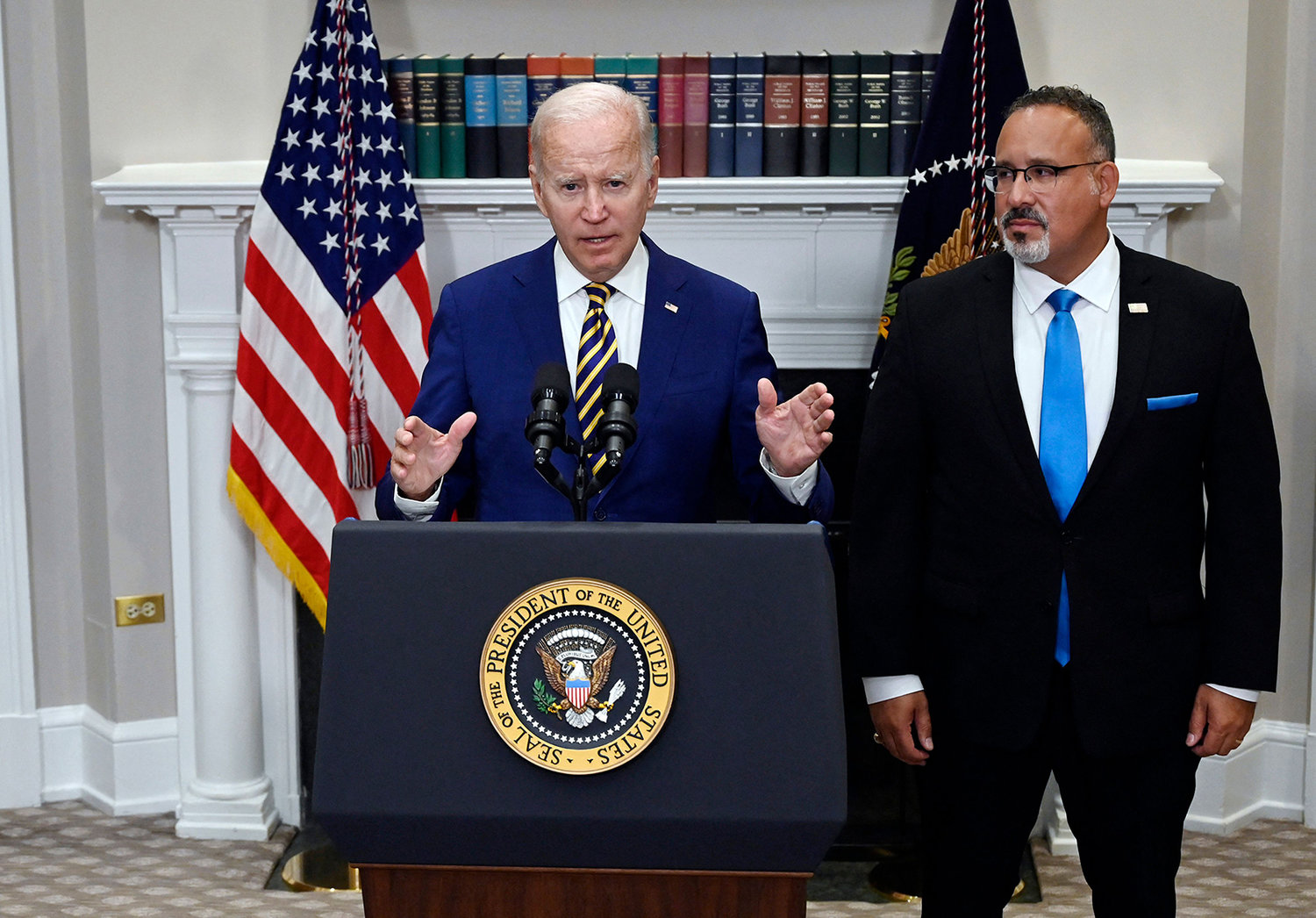By: George Will – washingtonpost.com – February 17, 2023
In his State of the Union address, President Biden had thoughts about almost everything, even unto the crisis of hotel “resort fees.” He was, however, parsimonious with words — just a three-word boast about “reducing student debt” — concerning his policy of student loan forgiveness. His reticence about unilaterally spending, by executive fiat, about $400 billion perhaps reflected foreboding.
He knew that on Feb. 28 the Supreme Court will hear oral arguments about his plan’s constitutionality. An amicus brief from 11 conservative intellectuals, with impressive judicial and executive branch experience, demonstrates that Biden’s behavior is a particularly egregious example of lawlessness committed by presidents of both parties. Were Biden to succeed, the nation’s constitutional architecture would be irrevocably altered.
The Magnificent Eleven note that the framers considered the power of the purse “the central and most important constitutional power reserved exclusively to the legislative branch, enabling it to oversee and control virtually every activity of the federal government.” Hence the clarity of the appropriations clause: “No money shall be drawn from the Treasury, but in consequence of appropriations made by law.”
In recent decades, however, presidents have spent without congressional action — even when, as regarding student loan forgiveness, Congress has explicitly rejected such spending. If Biden’s unauthorized loan forgiveness for 43 million borrowers is allowed, it will be one of the largest expenditures in U.S. history. And it will come after Congress between 2020 and 2022 passed multiple pandemic relief bills dispensing $5 trillion — one of which suspended federal student loan payments — yet none authorized loan forgiveness.
Furthermore, Congress has been clear: There is no legal difference between waiving payments owed to the Treasury and affirmative spending.
One of the Magnificent Eleven, Stanford Law professor Michael McConnell, formerly a judge on the U.S. Court of Appeals for the 10th Circuit (and author of “The President Who Would Not Be King: Executive Power under the Constitution”) says: The spending power vested in the legislative branch is “the foundation stone of all separation-of-powers law.” For this we can thank, among others, Charles I.
The Constitution’s framers knew that because the 17th-century British monarch had had substantial sources of revenue independent of Parliament, he was uncontrollable. Other than by beheading, which is messier than the appropriations clause. This clause, however, no longer impresses presidents.
President John F. Kennedy, impatient to launch the Peace Corps, diverted fundsallocated for other purposes seven months before Congress appropriated funding for the Peace Corps. During the 2008 financial crisis, President George W. Bush bailed out the auto companies with funds Congress had made available only for “financial institutions,” justifying it because the companies engaged in financing sales. (By this reasoning, the Magnificent Eleven note, Bush could have bailed out “virtually every other large sector of the economy.”) When Congress voted against funding a portion of the Affordable Care Act, President Barack Obama’s Treasury Department provided $7 billion. President Donald Trump “repurposed” some military appropriations to build the border wall that Congress had explicitly voted not to build.
Biden first claimed to find his loan forgiveness power in a nearly 20-year-old statute, passed in response to 9/11, that allowed loan modifications for members of the military. (There would be more than 30 times more beneficiaries of student loan forgiveness than there are active-duty membersof the military.) He says the covid-19 emergency (a pandemic he now declares “over”) enables loan forgiveness as an ameliorative measure.
The Magnificent Eleven wonder: By Biden’s reasoning, could a president declare, say, a climate emergency “as a pretext for unilaterally granting financial relief to some politically important constituency”?
Biden’s $400 billion overreach has taken presidential impudence to a new level. It signals his complete capitulation to his party’s progressives, whose project is to emancipate the president, and the administrative state he wields, from all restraints. To put a bridle on the modern presidency, Congress needs the court’s assistance. All the court needs is the appropriations clause.
Finally, although this is not the court’s concern, Biden’s gargantuan loan forgiveness expenditure is as morally repellent as it is constitutionally defective. And it should especially trouble progressives who are forever banging on about “social justice.” Biden’s regressive policy would benefit a portion of the privileged minority of Americans who have attended college and who for that reason will average higher lifetime earnings than those who have not attended. Hence, Sen. Bill Cassidy (R-La.) recently reported hearing this tart rhetorical question from someone regarding Biden, “Is he going to forgive the loan on my work truck?”
To see this article in its entirety and subscribe to others like it, choose to read more.
 Listen Online
Listen Online Watch Online
Watch Online Find a Station in Your Area
Find a Station in Your Area










 Listen Now
Listen Now Watch Online
Watch Online
